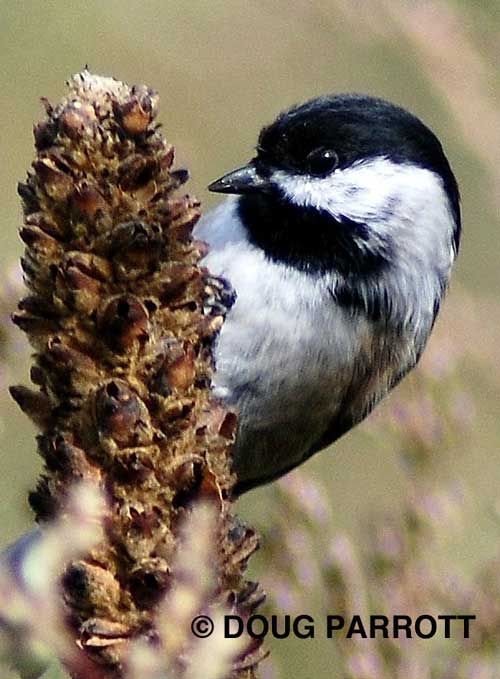Eulogy to the Ordinary
Though Black-capped Chickadees are among the most common birds of the Fill, they are anything but common, everyday animals. On the contrary, Black-capped Chickadees are extraordinary. Just ask yourself this: If to fix your breakfast you had to climb barefoot up a 50-foot tree, hang upside down by your toes, then drop like a trapeze artist 20 feet down to grab onto a new hold, all for the reward of one bug — and all before your first cup of coffee — how long could you survive?
My answer would be: three minutes, tops. But chickadees do this every morning for years without a single complaint.
Well, maybe they complain. It’s hard to say, not knowing exactly what their frequent “chickadee-dee-dee” song means.
Yesterday I was standing among the willow trees where the chip path curves south to Yesler Cove when three chickadees flew in to forage for insects. Before I knew it, they had triangulated me: one bird behind my left shoulder, one behind my right, and one in front. The one in front was so close I could see its throat throb as it gave its diagnostic call. The other two answered from concealment. The first one examined me with its beady left eye, then shined its equally beady right eye at me. Again it spoke to its companions, and again they answered. Then everyone came out to forage.
I became part of the little feeding flock. It was magical. Extraordinary. Some of the flock members hunted for bugs on the undersides of leaves and branches. Some scrambled through the leaf litter looking for seeds. I wanted so much to join in, but I’m not fond of bugs, and the seeds all around me were better left to the birds. I found myself getting hungrier and hungrier. The thought of a cheeseburger began to take over my mind. When the flock finally moved on, so did I: they to the next patch of brush, I to the nearest fast-food outlet. Not good. My recommendation? If you want to join a feeding flock, bring along a healthy salad in your backpack.
FUN FACTS ABOUT BLACK-CAPPED CHICKADEES
• In fall and winter, Black-capped Chickadees often cache seeds in many different hiding places.
• They can remember where they hide all their seeds because each fall, they grow new neurons in their brains, just for this purpose.
• Black-capped Chickadees are the gourmands of the avian world: They spend much of their day finding and eating food, and they aren’t fussy about what they consume. They eat seeds, nuts, fruit, insects, spiders, larvae and eggs of small arthropods, suet at feeders, and even carrion.
• Black-capped Chickadees form long-lasting pair bonds.
• In breeding season, they are extremely territorial and will fight to defend their nest holes.
• During the off-season, though, they flock together for protection. Other small birds are welcome to join the flock. It’s common to see a feeding flock of chickadees, kinglets, sparrows, and even overwintering warblers.
• The oldest known chickadee lived to be 12 years old.
• Chickadees sleep in their own holes at night.
• Chickadees communicate many messages with their song. Among the most important are alarm calls, warning other birds of predators. The more “dee’s” in a chickadee’s song, the greater the alarm.

